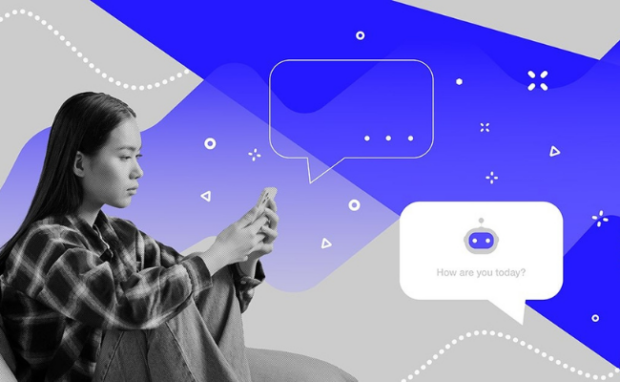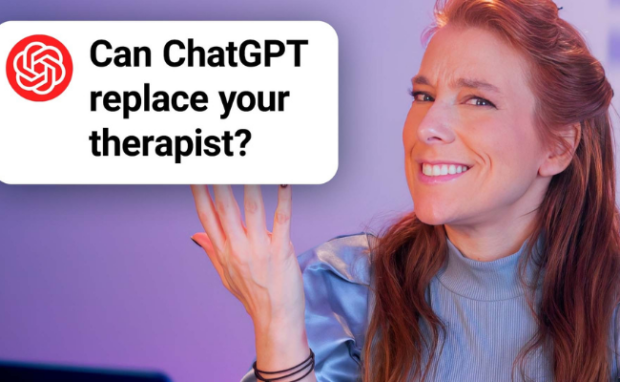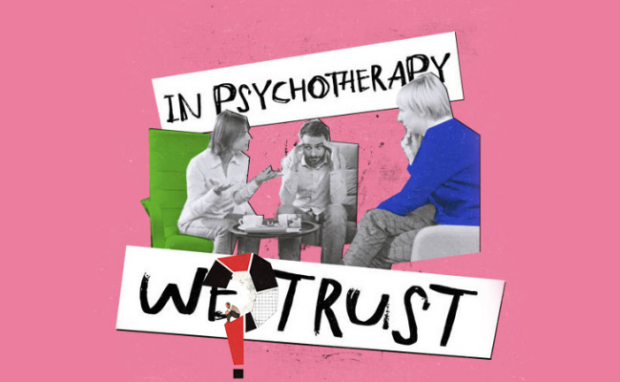ChatGPT Therapy: Why People Ask AI For Mental Health Advice
ChatGPT’s ability to produce seemingly-manmade text and responses within seconds amazed the world. As a result, it gained 100 million users in January, becoming the fastest-growing consumer application in the world. Nowadays, it has integrated into our daily lives. However, nobody expected it to produce a trend called ChatGPT therapy.
More people are turning to the AI chatbot for mental health advice. Some find it easier to share their thoughts and feelings with a machine than with someone. Others cannot afford conventional therapy sessions, so they use ChatGPT as a more affordable alternative. Yet, should we accept the AI bot as a legitimate mental health expert?
I will start by explaining why people are using ChatGPT therapy. Then, I will cover opinions from various mental health experts on the trend. More importantly, I will explain why the AI bot is not an advisable replacement for mental help.
Why are people using ChatGPT therapy?

Photo Credit: linkedin.com
I will cover stories from two people who used ChatGPT for therapy. We will start with Freddie Chipres, a 31-year-old mortgage broker.
He told Mashable he felt melancholic despite his “blessed” life. Sometimes, he felt lonely, especially while working from home. As a result, Chipres wondered if he was depressed.
The broker knew friends who benefited from seeing a therapist. He was more willing than ever to try the service, but it would mean scheduling an appointment.
He merely wanted to have feedback about his mental health. Eventually, YouTube videos recommended ChatGPT as a viable alternative to professional help.
Chipres was glad to see the chatbot provide practical advice quickly. It told him to walk to boost his mood, take a hobby, practice gratitude, and meditate.
You may also like: The Top 10 Applications of ChatGPT In Daily Life
He loved how the Chatbot was convenient, simulating what it was like talking to another person. “It’s like if I’m having a conversation with someone,” Chipres said.
“We’re going back and forth,” he added, sometimes referring to the bot as a person. “This thing is listening. It’s paying attention to what I’m saying and giving me answers.”
Another ChatGPT therapy story involves Tatum, a former US military veteran who served six years in the Air Force. Unfortunately, he told SBS News he couldn’t access affordable mental health support.
“I used to get my treatment (for) depression in the military, but since I have left, I have no access to that kind of healthcare anymore,” Tatum said. As a result, he turned to ChatGPT and explained, “It’s cheaper to get mental health advice from an AI chatbot in comparison to a psychologist – even with insurance.”
What do mental health experts say about ChatGPT therapy?

Photo Credit: nebula.tv
Numerous mental health experts have expressed concerns about ChatGPT therapy’s rise. Sahra O’Doherty, director of the Australian Association of Psychologists, said it was a “worrying trend that people are resorting to AI, particularly in its infancy.”
Also, O’Doherty worried about its inability to triage risk. Triage refers to the three protocols medical professionals use to assess health problems properly.
The doctor said, “I very much feel it is dangerous for a person to be seeking mental health support from someone who isn’t familiar with the physical location that that person is living in.” A recent suicide exhibits these real-world consequences.
A Belgian man took his life in March after following advice from the AI chatbot Chai. He was suffering severe anxiety about climate change, so he likely viewed its advice as a recommendation to commit suicide.
You may also like: Japan Uses Urine Test To Check Mental Health Risks
Carolina Estevez, a clinical psychologist at Infinite Recovery, explained some mental health website offer online help. They use chatbots to set appointments, answer frequently asked questions, and store customer data.
“However, they have not been used for the therapy itself because the technology is not sophisticated enough to capture the nuances needed,” Estevez told TechNewsWorld. “It would not be able to give sound counseling, proper diagnosis, or even determine how a person is feeling,” she added.
Why ChatGPT is not advisable for therapy

Photo Credit: analyticsinsight.net
There are three reasons why ChatGPT is not a viable alternative to therapy. First, OpenAI did not design the bot to offer mental health solutions.
Dr. Adam S. Miner, a clinical psychologist who studies conversational AI, said therapy helps clients reflect on their circumstances to determine solutions. A chatbot is unlikely to have this ability.
“We kind of have to be realistic in our expectations where these are amazingly powerful and impressive language machines,” he stated.
“They’re still software programs that are imperfect and trained on data that is not going to be appropriate for every situation,” he stated. “That’s especially true for sensitive conversations around mental health or experiences of distress,” Miner added.
Second, ChatGPT therapy sometimes has incorrect answers but never admits it is wrong. Dr. Elena Mikalsen, chief of pediatric psychology at The Children’s Hospital of San Antonio, felt astonished to see ChatGPT giving inaccurate information.
You may also like: Cleft Charity Launches All-Filipino Therapy App
She said it focused on medication when treating childhood obsessive compulsive disorder. However, she said the proper treatment involves cognitive behavioral therapy.
Third, other online services provide better help than ChatGPT therapy. Dr. Elizabeth A. Carpenter-Song, a medical anthropologist, cited other chatbots like Wysa and Woebot, which offer AI-guided therapy.
Also, people could use Koko and TalkLife for free mental health assistance. Carpenter-Song says people should use digital tools with other types of support for the best results.
Conclusion
More people are turning to ChatGPT therapy for mental health solutions. However, other tools and services provide better help than the AI bot.
Yet, AI will inevitably become a mental health tool. “We need to understand more about how these tools can be useful, under what circumstances, for whom, and to remain vigilant in surfacing their limitations and potential harms,” said Dr. Carpenter-Song.
Do you want to know more interesting tech trends? Follow Inquirer Tech for the latest updates on artificial intelligence, gadgets, and more.
Frequently asked questions about ChatGPT for therapy
Can you use ChatGPT for therapy?
More people are using ChatGPT for psychological therapy nowadays. However, OpenAi did not develop the chatbot for this purpose, so it is unlikely to provide adequate help. You should consult a proper mental health professional for help. Also, you may choose other online services that provide better psychological support.
Can chatbots function as therapists?
Numerous chatbots have been providing mental health solutions before ChatGPT therapy became popular. For example, Woebot and Wysa provide AI-guided therapy for a fee. On the other hand, you can try TalkLife and Koko to receive free medical assistance. Still, psychologists and therapists provide the best results.
What should you do if you need mental help?
If you believe you are experiencing a mental health issue, talk to someone you know. Then, request mental health services at your nearest hospital. You may call your country’s mental health hotline or other online services. You will receive the help you need to continue enjoying your life.